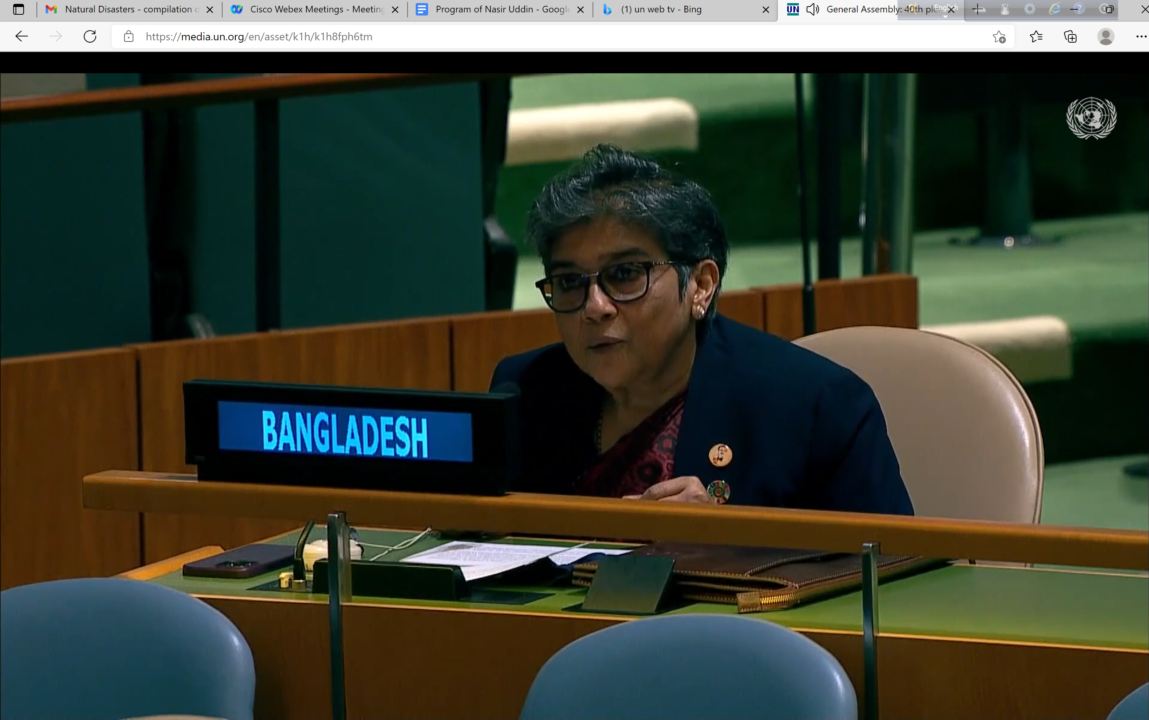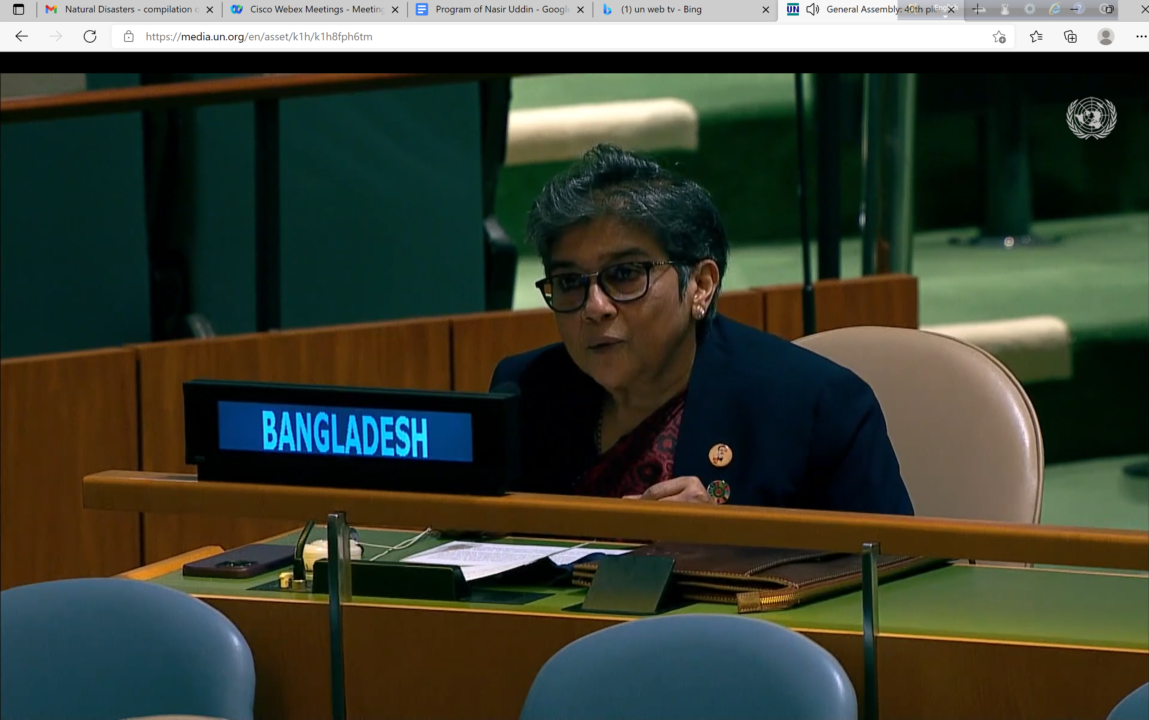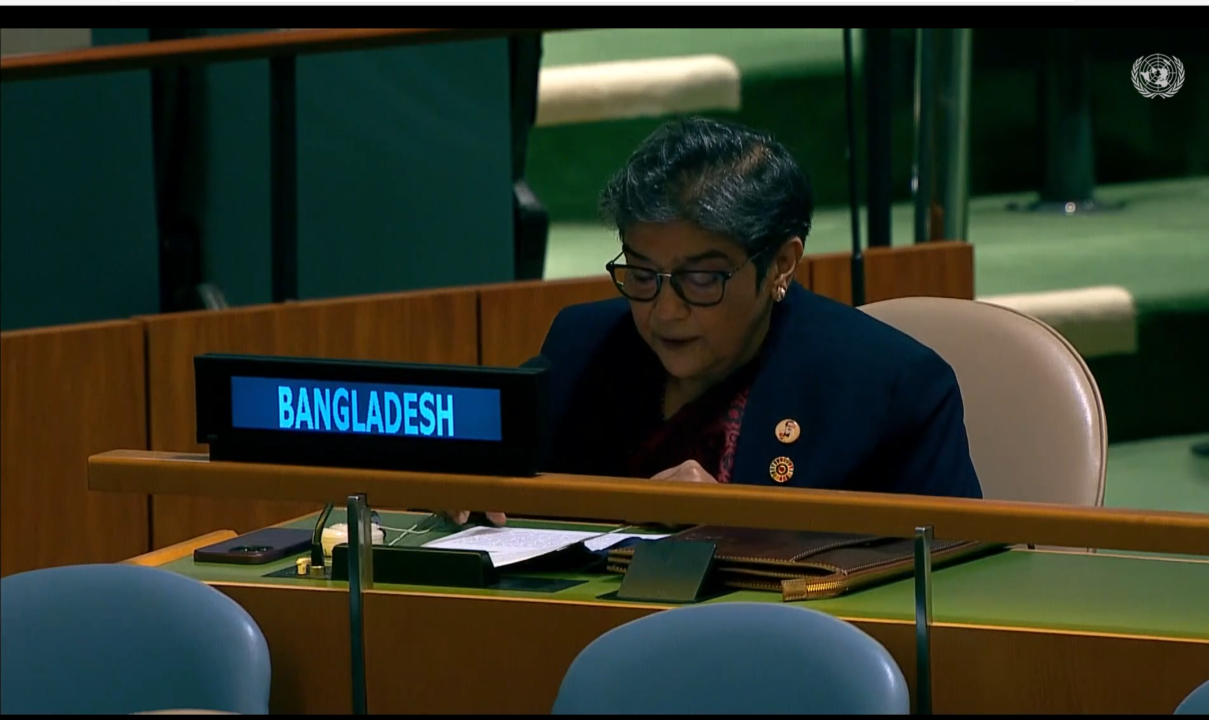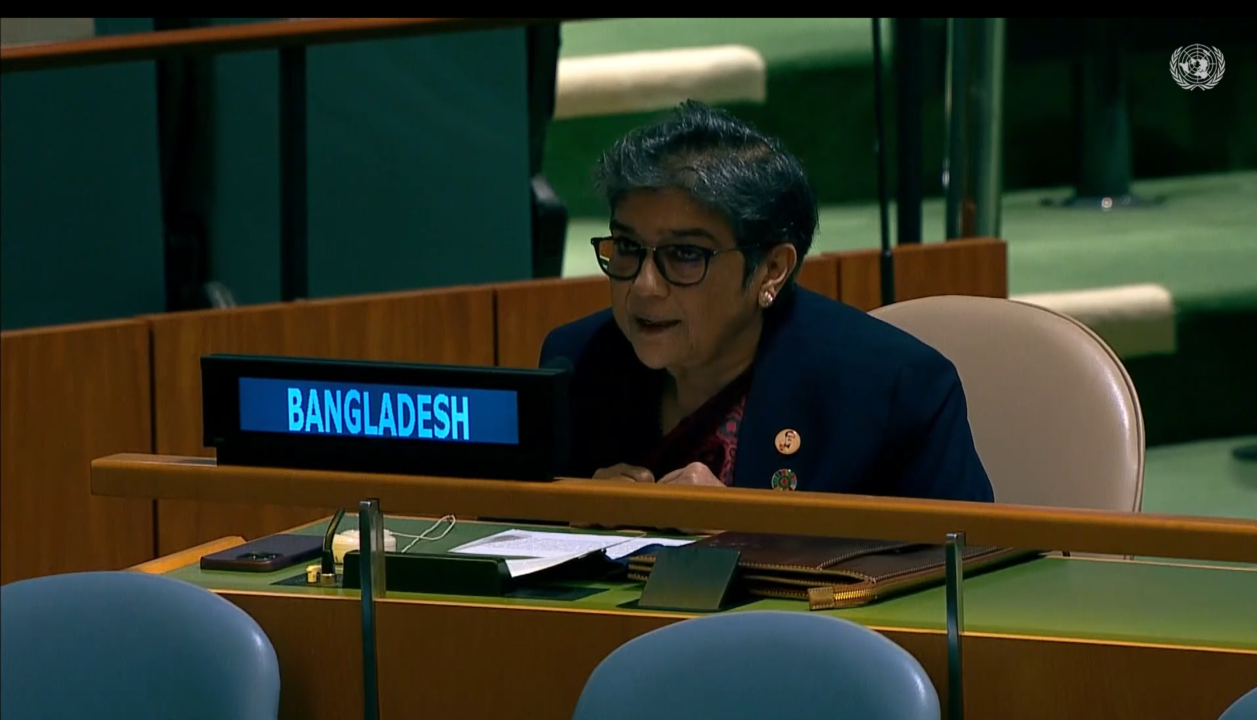Mr. President, Excellencies, Distinguished Colleagues.
I thank all Member States, especially our development partners, for their support and flexibility to reach consensus for the unanimous adoption of resolution A/76/L.6 Rev. 1 entitled the for graduation of Bangladesh, Lao PDR, and Nepal from the LDC category.
With the adoption of this resolution, we have been able to complete yet another milestone for our graduation. We have now a specific roadmap to graduate from the LDC category by 2026.
I thank the facilitator of this resolution, Ms. Agnes Harm of Fiji and G-77 coordinator, Mr. Namgyal Dorji of Bhutan for their tireless efforts in this regard. I also thank OHRLLS & CDP for their constant support throughout the process.
I take this opportunity to congratulate Nepal and Lao PDR for achieving this important landmark with us.
Graduation has been a long-cherished national aspiration for us. This comes at an auspicious time when we are celebrating the 50th anniversary of our independence and the birth centenary of our Father of the Nation.
Prime Minister Sheikh Hasina envisioned to transform Bangladesh into a middle-income country by 2021 and a developed country by 2041. She has led us in this exciting journey from the front despite the unprecedented challenges posed by the COVID-19 pandemic.
Mr. President,
The resolution that we have adopted today is marked by some important elements. It reaffirms that graduation should not result in a disruption or reversal of development plans, programmes, and projects in our countries. It also embeds the notion of continuous monitoring to ensure sustainable and irreversible graduation. [And] It advises the CDP to further analyze at its 2024 triennial review whether the preparatory period extended to the graduating countries will be adequate to manage the COVID-19 impacts.
These are welcome developments, especially now in our efforts to build back stronger from the pandemic and develop further resilience against current and future shocks, including the overarching challenges of climate change.
Mr. President,
We are at the final stage of our preparation for the LDC V Conference to be held in Doha, Qatar in January 2022. As one of the co-chairs of the PrepCom of the Conference, Bangladesh looks forward to a transformative Programme of Action for the LDCs in the coming decade. The draft Doha Programme of Action has identified sustainable graduation as an important focus area. It has set a target to enable 15 additional LDCs to meet the criteria for graduation by 2031. We need enhanced support and solidarity from our development partners to ensure appropriate, predictable and additional incentives and support measures to achieve this ambitious target.
Mr. President,
The graduation of an LDC is not only a success of the country itself, but also a testimony of the strength of multilateral partnership led by the UN. Graduation, however, comes with many challenges. The countries on graduation track are concerned by the impacts of loss of LDC specific support measures, [now] exacerbated by the COVID-19 crisis. They are also suffering from many pre-existing vulnerabilities, such as inadequate productive capacity, infrastructural challenges, and sudden economic and climatic shocks.
It is, therefore, imperative to ensure continued and strengthened international support measures to the graduating and graduated LDCs. The upcoming 12th WTO Ministerial and LDC-V Conference provide us with important opportunities to come up with new and innovative support measures for them.
Let me share three specific thoughts in this regard:
First, we should aim to ensure an incentives-based international support structure to graduating and graduated LDCs. Graduation should not be a punishment; it should be a reward.
There should be tailored and clearly laid down support measures to address every aspect of graduation, namely, loss of ISMs, access to non-LDC specific support, smooth transition & financing for SDGs implementation.
Second, it is imperative to enhance graduation monitoring that will be responsive to crises with adequate and timely support measures.
Finally, graduation is essentially a demand driven and politically led process. Therefore, it is imperative to put graduation high on the UN agenda, especially to bring transformative changes in the lives and livelihoods of more than one billion people in the LDCs.
I thank you, Mr. President [for this opportunity to share these thoughts on this very special occasion for us].




